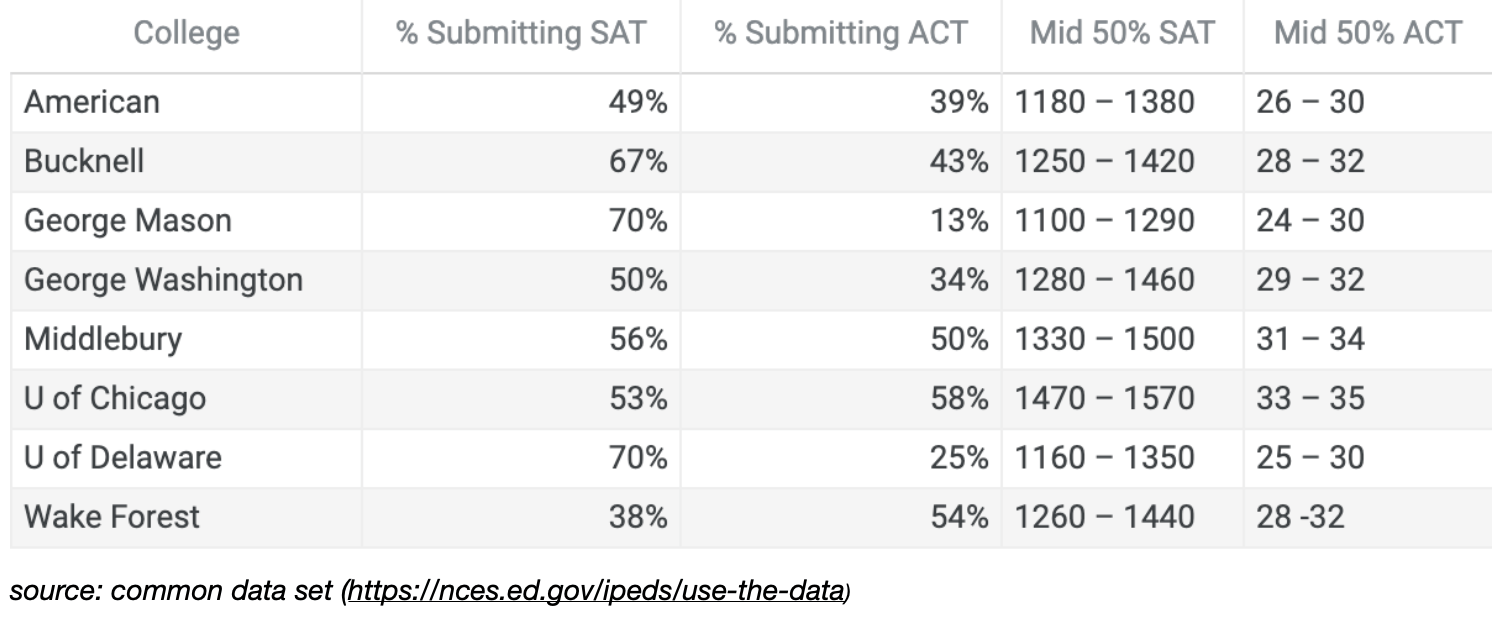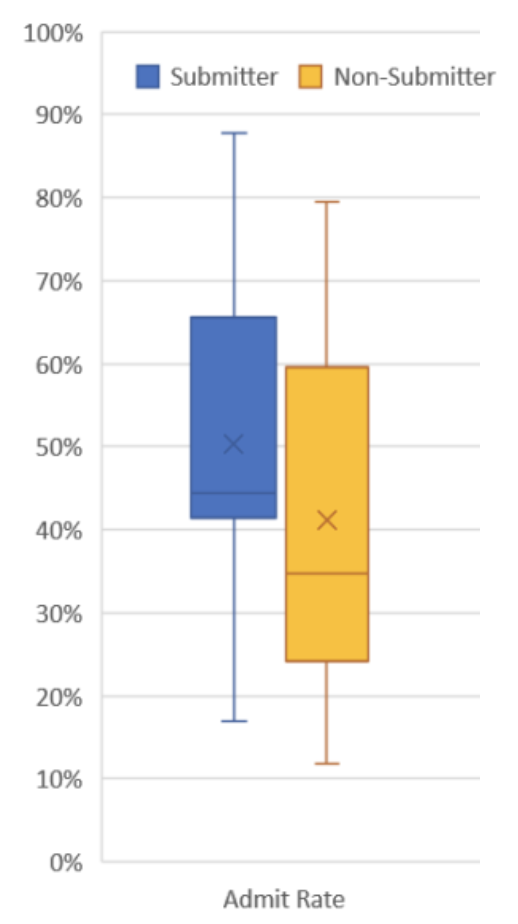It seems that every other day, more colleges are becoming Test Optional in response to the COVID-19 pandemic.
During one of the toughest moments in American history, this move appears to be an extension of good will from colleges and universities across the country.
Students who had the March, April, May, and June SAT and ACTs cancelled could breathe a collective sigh of relief. One less thing to worry about. After all, the term “test optional” suggests that submitting their scores won’t affect their chances of acceptance at their school of choice.
While this might seem to make college admissions less competitive for the class of 2021, it’s important to truly understand what test optional means and the implications for your student.
Why are Colleges Going Test Optional?
If there’s one clear winner from going Test Optional, it’s colleges. Colleges that go test optional see…
-
- …an increased number of applicants, which means more selective acceptance rates
If a college receives 20% more applicants by going test optional and admits the same number of applicants, the colleges acceptance rate will go down, making them seem more exclusive and competitive.
- …an increased number of applicants, which means more selective acceptance rates
-
- …higher reported test scores
Students whose test scores are not as competitive are more likely to go test optional, meaning students who do submit are more likely to have higher scores. As a result, the average test score of applicants goes up.
- …higher reported test scores
-
- …higher National Rankings
The first two factors (lower acceptance rates and higher average test scores) elevate a college’s ranking on sties like US News, which increases perceived prestige.
- …higher National Rankings
-
- …increased diversity
Research has found that underrepresented minorities, low-income, or first-generation college students are more likely to apply test optional.
- …increased diversity
Of course, Test Optional has already been the norm for many selective universities. What do the data say about how Test Optional functions at their institutions?
What the Data Say about Test Optional
A 2018 research study called “Defining Access” looked at nearly one million applications at 28 test-optional colleges before the COVID-19 Pandemic. It made a couple of key conclusions:
Takeaway 1: Students Overwhelmingly Submit Test Scores at Selective Test-Optional Universities
That Defining Access study found that 75% of students applying to Test Optional schools still submit test scores.
Data provided by Test Optional colleges to the National Center for Education Statistics show just the same.

Takeaway 2: Non-submitters were about 10% less likely to be admitted
Below is a box-and-whisker plot of the data collected through the Defining Access study. The x’s represent the mean. The horizontal lines above and below the boxes represent the range. But as you can see, the mean admit rate for score submitters was about 10% higher than for non-submitters.
This is most likely due to non-submitters having lower quality applications than submitters.

Test Optional vs Test Blind…There’s a Difference!
Most people often think, “If a college is Test Optional, test scores won’t play a significant role in admission.”
This is a pervasive misconception.
Only Test Blind schools don’t consider test scores at all. Test Optional schools do.
Test Optional means…
• Scores are not required
• Students can submit or not
• Colleges can make determinations based on submission or lack of submission of scores
Examples of Test Optional Schools include Wake Forest, U of Chicago, George Washington, Bowdoin, Brandeis, and American University.
Test Blind means…
• Scores are not required
• Students can’t submit scores
• Colleges do not make any determinations based on submission or lack of submission of scores
Examples of Test Optional Schools: Hampshire College
Not Submitting Test Scores Communicates Low Scores
When you apply to a Test Optional college and don’t submit test scores, colleges will naturally assume you don’t have a competitive score, because, well, why else wouldn’t you submit it?
Without having the data point of your SAT or ACT score to look at, colleges MUST rely more heavily on the other components of your application to make their admissions decision.
These are things such as…
Academic Record
Extracurriculars
Essays
Recommendations
Interviews
Other Application Requirements
For a student who is at the top of their class with rigorous coursework, who can show years of passionate involvement with a select few extracurriculars, who has outstanding letters of recommendation, and a strong essay, but does NOT have test scores within a college’s 50th percentile range, not submitting scores may be a good option if they’re applying to a Test Optional institution.
There’s another catch…
Just because a college is Test Optional, doesn’t mean ALL students who apply are not required to submit test scores.
For students hoping to receive merit aid, scholarships, acceptance to honors programs or competitive STEM majors, colleges are highly likely to require students to submit scores.
Should your student submit scores?
So, when should your student submit scores? Every student is different, and it’s up to you to determine if it makes sense for your student.
Here are some general guidelines that should help:
Students SHOULD submit scores if they…
- Have competitive scores (50th percentile range or above of a college’s test score range)
- Want merit-based scholarships
- Hope for better financial aid packages
- Are applying for honors programs
- Intend to study highly selective or competitive majors
- Have an application that is not otherwise impeccable
Students SHOULD NOT submit scores if…
- Test scores are below the 50th percentile of the college’s accepted students score range
- There are no additional opportunities to improve their test scores
- Their academic record is exceptional in relation to the school they are applying to
Looking to give your child an advantage over the competition?
All of our tutors are 99th-percentile scorers on both the SAT and ACT and love to coach students to success on these tests. To get more information or to setup your free consultation please call (610) 744-2527 or send us an email [email protected]. We hope to hear from you soon!
SOURCES
This blog article was adapted from several sources. First, a Webinar entitled “What Does Test Optional Mean for You?“ by Judi Robinovitz and Score at the Top in Boca Raton, FL. Secondly, “Test-optional does not mean Test Blind” by Jed Applerouth of Applerouth.




